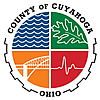OHS Advisory Board
The Advisory Board is broadly based with representation from all sectors of the community, in compliance with the HEARTH Act, 24 CFR Subpart B, 578.5 -7. The HEARTH Act requires that the governing body of the CoC be comprised of “relevant” organizations and provides examples of what is considered “relevant organizations”. This list includes, but is not limited to, the following: nonprofit homeless assistance providers, victim service providers, faith-based organizations, governments, businesses, advocates, public housing agencies, school districts, social service providers, mental health agencies, hospitals, universities, affordable housing developers, law enforcement, and organizations that serve veterans. The only required category of representation is a homeless or formerly homeless person.
The Advisory Board shall be composed of up to 30 members. The Advisory Board membership shall consist of up to 25 standing seats and 5 at-large seats. The CoC is committed to diverse, equitable and inclusive (DEI) membership on the Advisory Board. Using CoC system data, the Advisory Board will take affirmative and definitive steps to ensure members reflect the diverse demographics and experiences of individuals and people experiencing homelessness in Cuyahoga County.
The goals of the Advisory Board as stated in the Board's Mission and Goals Statement are consistent with the Homeless Emergency Assistance and Rapid Transition to Housing (HEARTH) Act and the priorities of the U.S. Interagency Council on Homelessness (USICH) as follows:
- To assist the Office of Homeless Services (OHS) to reduce and end homelessness through advocacy, policy review, priority setting, coordination, and the alignment of community resources.
- Facilitate interagency and intergovernmental cooperation and promote private sector collaboration and participation.
- Clarify and prioritize the goals of the Cleveland/Cuyahoga County Continuum of Care.
- Identify and review local, state, and federal public policy issues impacting individuals and families experiencing homelessness.
- Develop financial priorities for the distribution of public funds, and seek to influence the distribution of private funds.
- Establish criteria to monitor and evaluate delivery of services.
- Develop avenues to communicate concerns regarding policy issues.
- Review systems performance data and recommend policy, practices and programs to improve outcomes.
Committees
The Advisory Board shall have standing committees and additional ad hoc committees and work groups as deemed necessary by vote of the Advisory Board. The standing committees with respective roles are as follows:
A. Executive
B. Governance
C. NOFA Review
D. NOFA Strategy
E. Program Policy
F. Youth Action Board (YAB)
Resources
- CoC Shelter Standards
- OHS Advisory Board Meetings and Materials
- OHS Bylaws and Governance Charter
- OHS Advisory Board Membership
- OnBoard Presentation
- 2023 COC Trainings
- February 14, 2023 Session
Passcode: .Wgnh4YZ - February 7, 2023 Session
Passcode: ?.hh8&&0
- February 14, 2023 Session

